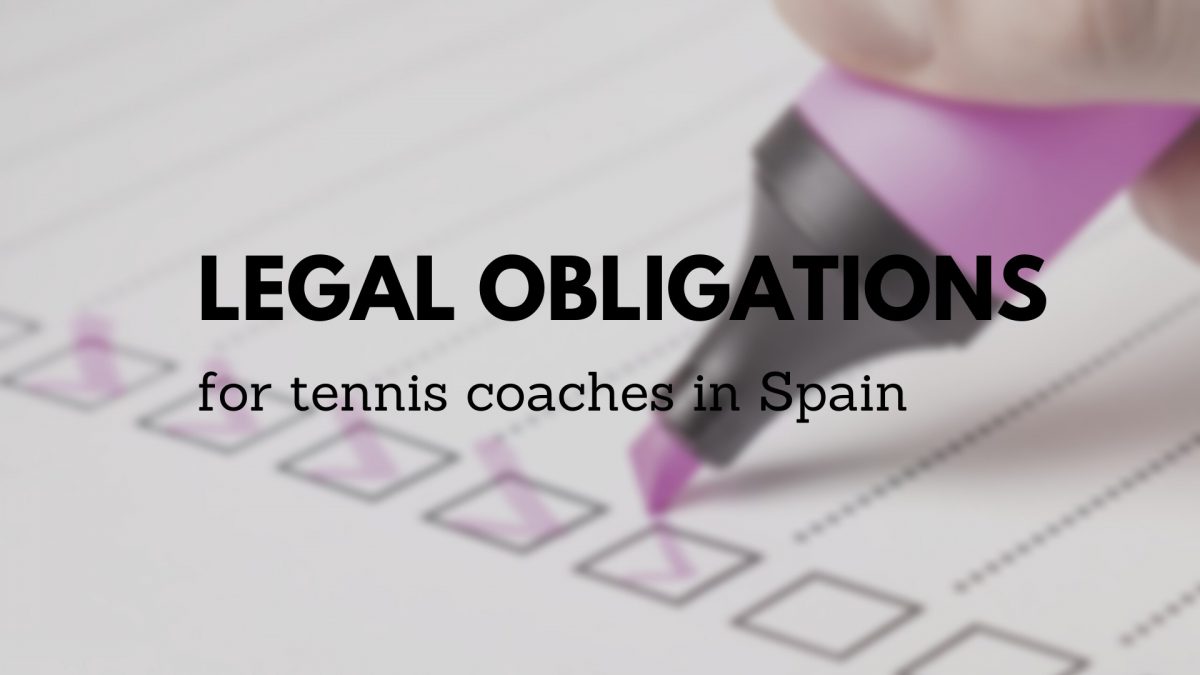In Spain, all professional tennis coaches are required to fulfill essential legal obligations in order to practice this profession. In this article we will list the minimum requirements and help you locate the specific public laws where you can find relevant information for further reading.
Table of Contents
Law regulating sports professions in Spain
First of all, it is important to note that Spanish government has not yet passed a state-rank legislation to regulate the exercise of sports professions at a national level. Therefore, in recent years, the Autonomous Communities have taken the initiative and have regulated the practice of sports professions through specific regional laws. As a consequence, some communities have been able to regulate sports occupations such as the one of a tennis coach and others have not.
Those Autonomous Communities whose local governments introduced their Sports Professions Laws in recent years, based their writing on the European Qualifications Framework and the Spanish Qualifications Framework for Higher Education. However, we must be aware that these legal texts are not homogeneous and are unequally identifying certain occupations and activities in each territory. This creates a need for a proper state regulatory framework to be developed soon.
The best place to find the most recent decree laws regulating the exercise of sports professions in Spain is the Official State Gazette called BOE (Boletín Oficial del Estado).
In the search option if we put the phrase “ejercicio de las profesiones del deporte”, which means “exercise of sports professions”, we will get the full list of decree laws and their later modifications for each Spanish Autonomous Community that has introduced the law. Therefore, we can find that for the Community of Madrid the law was first introduced in 2016 and later modified in 2019. The Community of Catalonia was in fact the first community to pass the law in 2008 which was later modified in 2015.
For the purpose of sharing a list of legal requirements for tennis coach profession in Spain, we will be following the legal texts of the “Decree on the Exercise of Sports Professions” for Catalonia region. The reason for that is that we at Fit In Tennis are based in Barcelona and that is what applies to us. However, if you are interested in the legal requirements for another community it is better you search for the document on BOE website as described above.
This is the link to the original law from 2008 including all future amendments: Ley 3/2008, de 23 de abril, del ejercicio de las profesiones del deporte.
Requirement 1: Legal employment
In order to legally perform their job, a tennis coach has to be either employed by a tennis club, academy or center or be self-employed (Article 1 of the Decree).
As obvious it may seem, you will be surprised how many tennis coaches in Spain do not have any legal contract to actually exercise this profession and be paid legally. There are coaches who might want to work without a proper contract and be paid under the counter to avoid paying taxes. This is very risky not only for the tennis coach and the tennis center where they are providing trainings but also for the players. If there is any accident on court in which the player has suffered an injury due to coach’s negligence they will not be able to make the coach or tennis center liable for any compensation.
What could be the evidence that your coach is not legally employed or self-employed in Spain?
- The tennis classes are suspiciously cheap. The taxes in Spain are very high. Just as an example, for a self-employed coach they have to pay 21% of VAT from the revenue, then deduct all costs such as tennis balls, court fee, clothes, etc., then pay income tax which is around 18% and from what is left they have to pay social security which is a minimum 280€ per month regardless of what you make. Therefore, if your private tennis lesson costs 20€ it is very unlikely it is legitimate.
- You are always meeting your coach on rented courts at public municipal tennis centers which is not their habitual workplace. Certainly, the majority of coaches who do that should be self-employed as they rent the court for a fixed price which is their expense. However, in order to know if they actually are you can ask them for an invoice which brings us to the next point.
- When asked, your coach is reluctant to provide you with a VAT invoice. If your coach is unable to give you a VAT invoice for your trainings or they give you an invoice but under someone else’s name or they only give a receipt, it is quite likely they are not self-employed as tennis coach.
- The coach is very young and it is their summer job. Although many coaches at summer tennis schools are employed by the tennis center their employment contract might be as a volunteer or temporary summer job which means they should not be alone with tennis players, unless they have proper coaching qualifications.
Requirement 2: Coaching qualifications
In Spain, whether a tennis coach is giving tennis training to beginner players, amateurs, high-performance players or competitive athletes of any age, they are all required to have proper coaching qualifications (Articles 4, 5 and 6 of the Decree).
The law specifies that there are three sports coaching titles: sports instructor (“monitor deportivo”), sports coach (“entrenador deportivo”), sports director (“director deportivo”). Each title allows a teacher to work with specific groups of student players and to take on different responsibilities. For teachers of tennis it would be as follows:
Tennis Instructor (“Monitor de tenis”) is someone who is able to apply the basic training principles needed to coach beginner to intermediate players of all ages. They have knowledge of basic tactics and technique as well as can organize simple competitions and activities. They know how to use correct equipment and court sizes to effectively teach tennis to children. They can offer themselves as an assistant coach to higher qualified coaches.
Tennis Coach (“Entrenador de tenis”) is a professional tennis coach or expert coach who is trained to work with advanced and competing players. They know how to plan the training and competition programme for athletes and teams. They have the tools to successfully train, select, direct, control, evaluate and monitor their players. The tennis coach title is a step-up from the tennis instructor title.
Tennis Director (“Director de tenis”) is a master coach who is formally recognized as someone able to help high performance players technically, tactically, physically and mentally. They know how to plan and organise the competition schedules for high performance athletes. Moreover, the profession of tennis director allows the exercise of all the professional activities related to the promotion, direction, management, programming, planning, coordination, control and supervision in tennis centers, both public and private.
In Spain, the best way to obtain those qualifications is by completing the official course offered by one of the Tennis Federations such as the Royal Spanish Tennis Federation (RFET) or the Catalan Tennis Federation (FCT). They both offer complete courses to become Tennis Instructor (Level 1), Tennis Coach (Level 2) or Tennis Director (Level 3).
As an example these are the workloads and costs to complete those courses at Catalan Tennis Federation:
- 145 hours of in-person lectures
- 150 hours of hands-on practice at accredited tennis center
- Takes about 6 months to finish
- Costs about 800€ (in 2020)
- Level 1 Qualification
Until recently the majority of coaches in Spain did not possess any coaching title; however, it has been changing for the better and nowadays most coaches in Spain are obliged to obtain at least the first Tennis Instructor coaching qualification. In theory, with this title they are not qualified to coach advanced and competition players even though in many tennis academies and clubs in Spain they still do.
As we can see, even to get the first level certification it requires a lot of time and workload from an aspiring coach. This is the reason why many other organizations, registries or the academies themselves have launched their own “Tennis Coaching Qualification” accelerated course programs which are the shortcuts to the official ones at the Tennis Federations. They usually cost an awful lot, take about a weekend or a week to complete and give you plenty of certifications for your CV. To know more check out our blog post about the official and fast-track tennis coaching qualification courses, their comparison and our personal opinion, as we at Fit In Tennis did both.
Requirement 3: Registry in ROPEC
ROPEC
Registre Oficial de Professionals de l’Esport de Catalunya
Every person currently exercising any sports profession in Catalonia needs to be registered in Official Register of Sports Professionals in Catalonia (ROPEC) with the corresponding title (Article 8 of the Decree).
Consequently, the inclusion in that registry is obligatory for any tennis professional working in Catalonia. Moreover, anyone can verify if their tennis coach is registered in ROPEC by calling General Secretary of Sports and Physical Activity. They will be able to obtain information regarding their exact professional qualification, whether it is a tennis instructor, a tennis coach or a tennis director.
Registration fees in 2020 were 66€ for an in-person application and 33€ (50% off) for an online application.
Requirement 4: Third-party insurance
Your coach should possess a third-party (liability) insurance in order to protect themselves from any liability during daily exercise of their profession as well as be able to secure the compensation for any material damage or corporal injury that their players might suffer in accidents during the tennis practice (Article 11 of the Decree).
Costs of third-party insurance for tennis coaches as of 2020:
- Option with maximum compensation of 150.000€ per accident and no annual limit at 83€ / year (Plus Ultra Seguros)
- Option with maximum compensation of 300.000€ per accident and 600.000€ annually at 90€ / year (Mapfre with the Coaches Licence from RFET)
- Option with maximum compensation of 600.000€ per accident and 1.200.000 annually at 122€ / year (Mapfre with the Coaches Licence from RFET)
Requirement 5: CPR and First Aid certification
The possession of a valid and up-to-date CPR and First Aid Certificates is not specified in the above decree regulating sports professions. Nevertheless, in another law regulating small and medium enterprises in Spain it is highly recommended if not required for employees to undertake first aid course once a year.
Tennis clubs, academies and centers are therefore obliged to provide CPR and first aid training to their coaches so that they know exactly what to do in case of an accident or injury on a tennis court. In addition, any self-employed tennis coach should also seek to accomplish the basic training in life saving and renew it every year.
Summary
We hope that the above list of legal requirements for tennis coaches in Spain can serve as a guideline and checklist for aspiring coaches as well as for parents and players who want to make sure they are receiving tennis lessons from qualified and respected tennis professionals.

